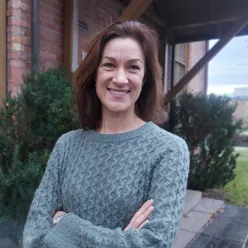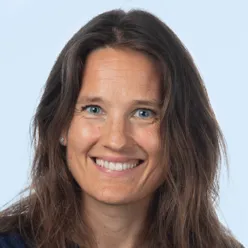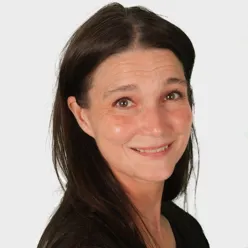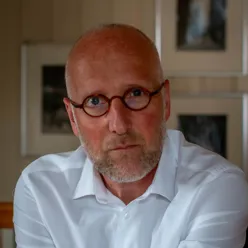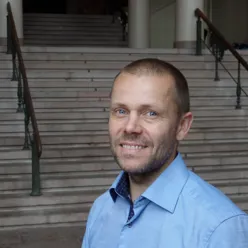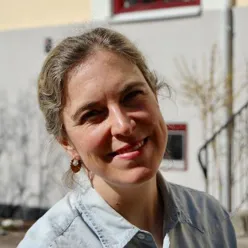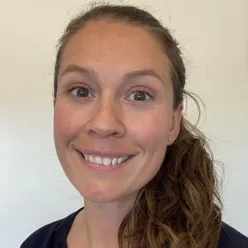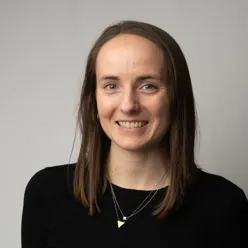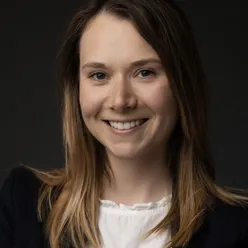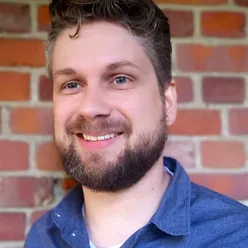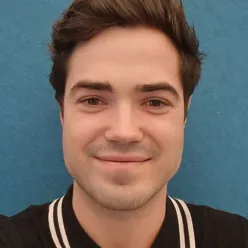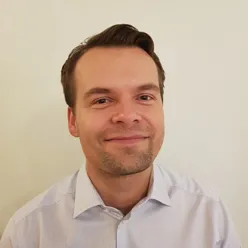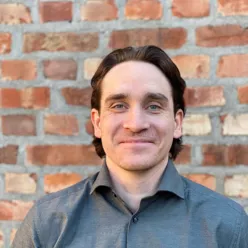
Better understanding and treatment of substance use and addiction disorders
Section for Clinical Addiction Reserach - RusForsk
Section for Clinical Addiction Research - RusForsk - is a research section at Oslo University Hospital. Our main objective is the development and improvement of treatment for patients with substance use and addiction disorders. Through close collaboration with the clinical environments at Oslo University Hospital and other health care institutions, we promote high-quality research that benefits the patients. All our projects have user representation.
Our projects
LASSO is a low threshold clinic for Opioid Agonist Treatment (OAT) for individuals dependent on heroin and other opioids who do not engage with the conventional offerings of Medication-Assisted Rehabilitation (MAR).
From 2010 until 2017, only the combination preparation of buprenorphine and naloxone was available as a medication for OAT at LASSO. As of spring 2017, buprenorphine monopreparation (Subutex Ⓡ) became accessible at LASSO, and from 2020, methadone and the long-acting buprenorphine (Buvidal) became available.
We aim to investigate whether a broader array of medications in low-threshold OAT enhances treatment outcomes and leads to an improvement in the well-being of more individuals with opioid dependence.
LASSO is a collaborative effort between the Agency for Welfare and Social Services (Oslo Municipality), and the Department of Addiction and Substance Abuse Treatment (Oslo University Hospital Health Trust).
The main aim of the project is to improve the health of people with substance use disorders in prison.
Through analysis of unique register data and collaboration with good research environments and user organizations, the project will map access to adequate substance use treatment in prison, as well as examine the outcome of such treatment. In addition to register data, the project will build on data from a comprehensive survey of drug use and health in prison, the Norwegian Offender Mental Health and Addiction study (NorMA).
See more info about the project
See project pages on OUS-research
This is a longitudinal research initiative that investigates the impact of prolonged anabolic-androgenic steroids (AAS) use on brain health, cognition, cardiovascular function and mental well-being. Our primary goal is to advance our comprehension of the enduring repercussions stemming from extended AAS consumption, while also shedding light on the underlying factors contributing to the development of dependence. The project is highly interdisciplinary, involving various hospital, university and international expertise. This collaborative approach ensures a comprehensive grasp of the interplay between endocrine, cardiovascular, and neuroimmunological factors and implications for brain health and dependence.
A high proportion of patients in interdisciplinary specialized drug treatment (TSB) have trauma disorders, but receive little knowledge-based treatment for the trauma disorder. INTACT will investigate a specific treatment method called Eye Movement Desentizitation and Reprocessing, abbreviated EMDR, in the Section of Addiction Outpatient Clinics at Oslo University Hospital. Previous research has shown that EMDR is effective in trauma treatment, but little research has been done on EMDR in people who have concomitant trauma and substance abuse disorders.
- Attitudes and experiences regarding HAT among patients, family members, and staff
- Process evaluation of the implementation of the HAT treatment program
The interplay between substance use, health, and use of health care services in people who use drugs
Background
Substance use disorders (SUDs) are a leading cause of premature mortality, and frequently co-occur with other psychiatric and somatic diseases. Multi-morbidity is associated with poorer treatment outcome, and significantly contributes to excess mortality. SUDs are complex disorders with high heritability, yet the underlying mechanisms are largely unknown. This knowledge gap has impeded the development of targeted and effective treatment options, particularly considering the complexity of identifying and treating patients with multiple diagnoses including SUD. The differences among SUD patients with comorbid diagnoses may reflect differences in the underlying biology. Thus, there is a need for a better understanding of the heterogeneity.
Method and design
The GenSUD project will contribute critical insights into the etiology of SUDs, by discerning patterns of disease trajectories using large Norwegian samples with registry data. Furthermore, the project aims to unravel shared genetic risks with mental and somatic diseases to understand underlying molecular pathways. Using data from the Norwegian Patient Registry, we will characterize the SUD patient group and identify clusters of multi-morbidity as well as temporal disease trajectories, taking into account the sequence of diagnoses preceding and following SUD diagnosis. Finally, blood samples from a subpopulation of SUD patients will be used to compute polygenic risk scores to identify genetic overlap psychiatric and somatic diseases and SUD-related phenotypes.
Status
The project received approval from REK on 6 December. We have begun analyzing data from the Norwegian Patient Registry and collecting blood samples from patients at rusakuttmottak.
Information about the project
EMDR stands for Eye Movement Desensitization and Reprocessing. The method aims to reduce the emotional response to alcohol-related triggers. First, situations, feelings, and thoughts that create cravings are identified. Then, the therapist and patient work together to reduce the activation associated with these triggers, one by one. The patient is asked to vividly imagine a trigger while simultaneously following a light or the therapist’s fingers moving rapidly from side to side, a process known as Bilateral Stimulation (BLS). By alternating between focusing on an external stimulus and the mental image of the trigger, the emotional activation is reduced.
Participants are offered rapid access to AF-EMDR. They receive AF-EMDR over a three-week period, with two sessions per week. The goal is to reduce the patient’s cravings for alcohol and decrease alcohol consumption. After the three weeks of intensive work targeting alcohol-related triggers, regular treatment begins as usual.
The information from this pilot project will form the basis for a possible larger study. Eight patients who are eligible for treatment at the Substance Use Outpatient Clinics Section at Oslo University Hospital (OUS) are offered three weeks of AF-EMDR before starting their standard treatment.
Many people want to gain control over their alcohol use but either do not wish to or are unable to attend an outpatient clinic. Oslo University Hospital is participating as a study site in a larger investigation of eTreatment for alcohol use. This means that participants can receive help from home. The study offers eTreatment to individuals with harmful or risky alcohol use, or who are concerned about their alcohol consumption. The study is led by Vestfold Hospital.
Se more info about the project in Norwegian
See our publications
See our PhD projects
About RusForsk
RusForsk's vision is "Better understanding and treatment of substance abuse and addiction disorders".
This means that our main goal is to contribute with increased knowledge and understanding of substance use and addiction disorders, as well as to develop and improve treatment for patients. RusForsk will stimulate and create high-quality research that can be published in international peer-reviewed journals, and have projects that receive external funding. The research section will collaborate with both and external partners.
Main Strategic goals 2025-2027
- The research section aims to produce research of high international quality on substance use and addiction.
The section aims to produce research on substance use and addiction based on data collected from patients at Oslo University Hospital. The projects should use a variety of methodological approaches dependent on the research questions, including efficacy studies on clinical interventions, observational studies as well as utilization of clinical- and demographic registers. - Research projects should benefit the clinical activity.
The section wants to stimulate a positive attitude towards research in the clinic, so the projects will aim to produce results that are relevant to the clinical practice. - All projects must have user representation.
Users must be involved in the planning and execution of the research projects, as well as in the communication of the results. - The research section is committed to fostering national and international research collaborations.
The research projects will be of international high quality. The researchers will collaborate with researchers and clinicians in both mental and somatic health services within and outside OUH. - The research section will be a visible actor and contribute to research dissemination.
The section aims to be accessible and relevant. In addition to the section’s strategy, a dedicated communication strategy is developed.
The research at RusForsk shall benefit the patients. Therefore, user representation is a prerequisite in all of RusForsk's projects. User representatives are involved in all phases of RusForsk projects, including planning and implementation, analysis, writing and reviewing, and dissemination fof results.
Rusforsk also works closely with the User Representatives Council at the Department of Substance Use and Addiction Treatment (Oslo University Hospital), presenting projects and research ideas, opening up for feedback and further collabaration.
Annual report 2023 (in English)
Årsrapporter fra tidligere år kan fås på forespørsel.
Research group for clinical addiction research - We conduct clinical addiction research in close collaboration with the outpatient and inpatient addiction treatment facilities at Oslo University Hospital. Topics include predictors for treatment outcome and effect of treatment interventions.
Group leader: Espen Ajo Arnevik
Research Group for Anabolic Androgenic Steroids - looks at effects anabolic steroids have on brain function, medical and mental health, and how the treatment offer for this group can be improved. The group consists of six people with professional backgrounds in neuroscience, psychiatry, psychology and medicine. The aim of the research is to contribute to increased knowledge about the effects steroid use can have on men and women, barriers users have against seeking treatment for steroid-related health problems, and to improve the treatment offer for steroid users.
Group leader: Astrid Bjørnebekk
Editor: Eline Borger Rognli
Web editor: Erlend M. Aas
Front page picture: Adobestock.com
